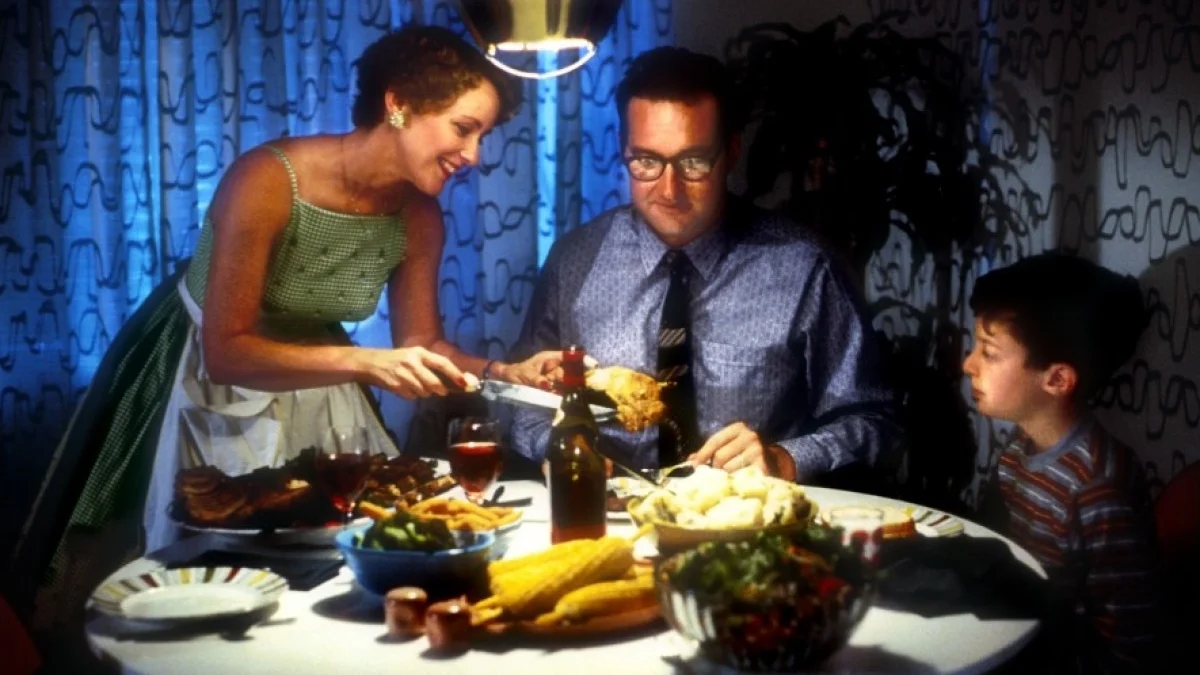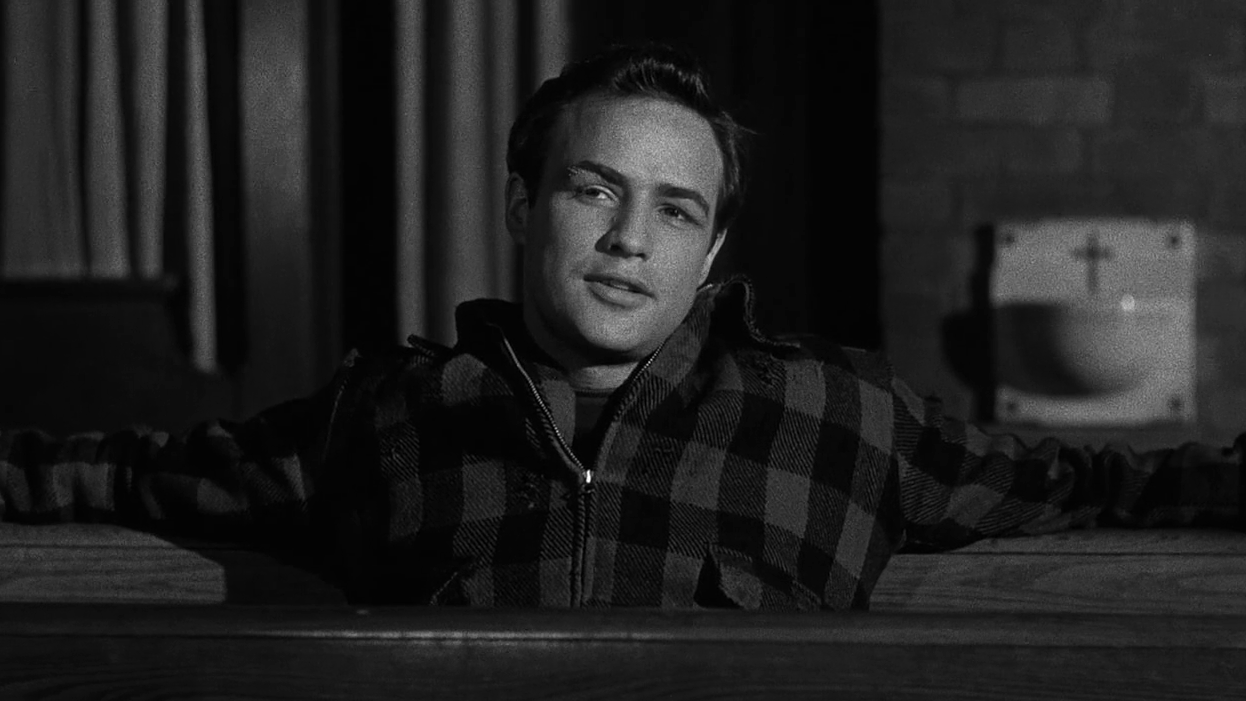Talk Film Summer Camp: Sound - Pontypool (2008)
Hey, campers! Glad you could join us for this inaugural Talk Film Summer Camp, where we here at Talk Film Society take a film per day, and dive into what makes each one a great example of one aspect of filmmaking. What we’re hoping to do here is spark a deeper appreciation for film and filmmaking in readers who may want to know more about each facet, so they can approach cinema with a deeper understanding of the invisible work casts and crews put in to tell a story.
No genre is more reliant on good audio than horror. Imagery on its own can certainly be frightening in its own right, but accompanying that with the right noise (or lack thereof) makes all the difference. A majority of scares in modern horror make their impact with a subtle absence of all sound before a sudden bang rattles your brain. It's easy to take this technique for granted, but not while watching Pontypool. Rarely does any significant action happen on screen, rather it's all sold through stunning sound design and lyrical dialogue. This approach does not lessen the fear in any way, it only takes an under-appreciated aspect of horror filmmaking and puts it front and center, making it the star of the show.
Right off the bat, the only thing we have to rely on to ease us into the story is a voiceover. The first visual is of sound waves dancing as a narrator tells us the story of Mrs. Frenchie's missing cat, Honey. Honey has been spotted near the bridge Pont du Flaque ('Flaque' being pool in French) by Colette Piscine in the town of Pontypool. Colette sounds similar to Culotte, 'panty' in French, while 'Piscine' is also pool in French, Panty Pool. Panty Pool drives across the Pont du Flaque (Pont du Pool) in Pontypool. This slick wordplay is present throughout, most of which delivered by the crisp crackling voice of Stephen McHattie as radio DJ Grant Mazzy. The script seems to have been written to be as aurally pleasing as possible, alliteration and repetition in particular are used to their maximum potential.
We spend the entire film in the station where Grant hosts his drive time radio show Mazzy in the Morning with his producer Sydney and engineer Laurel-Anne. It's a mundane area, there's nowhere to look that excites inside or out as it's the day of a massive snowstorm that conveniently whites out the few glimpses of the outdoors. With little to distract the eyes, the ears are fully tuned into every sound. The smooth talking host's morning broadcast is fit with the usual gimmick sound effects you'd expect from a radio station. Weatherman Ken Loney calls in from time to time to deliver the views from the Sunshine Chopper (which is his truck, but with helicopter sound effects).
These occasional calls turn sinister quickly, as Ken interrupts the humdrum small town news to report of a riot downtown that escalates into a full blown zombie situation. Ken huffs into the phone and speaks erratically to convey the offscreen chaos. The zombies are blind and attracted to noise, which naturally leads them to the blaring loudspeaker broadcasting outside the station. Outside, they bang away at the windows, a great example of the film's first-rate foley work. The Sunshine Chopper's canned effects, patter on the windows, squishy blood, and relentlessly blowing snow all build atmosphere. Another nice effect: the sound is slightly muffled inside of the soundproof booth.
While the crux of the plot of Denis Villeneuve's Arrival is language, Pontypool's is the way language sounds. As is learned later on, the zombie virus lives inside of certain words (well, technically not the words themselves but rather our understanding of them, maybe; it's murky and besides the point). It's here that the repetition comes into play, rather than moaning, the zombies mumble the word that got them in that state, over and over, to themselves. The 'cure' to this vocal stumbling is even reliant on unlearning and switching these words out with similar sounding but different words (kill is kiss, silence is silly, etc.).
Pontypool's most unsettling scene is not only a perfect example of how audio is used to truly sell a scare, but proof that it can be the only thing required. Visuals are impaired due to the snowstorm and Mazzy's car is parked at a stoplight. Mazzy tosses his phone away after a heated argument with his agent and suddenly a woman bangs on his car window. The thud, accompanied by a sharp music sting, startles, but it's when Mazzy attempts to speak to the woman that things get creepy. He rolls down his window and asks her what the hell she's doing and she backs away unnaturally fast so we are staring at a blank dark expanse and she starts mimicking everything that he says back at him until he gets frustrated and drives off. It's all thanks to sound design that we have this greatly unnerving horror scene, the type that truly sticks with you after the credits roll. Roll, credits. Roll. Roll roll roll roll roll roll.









